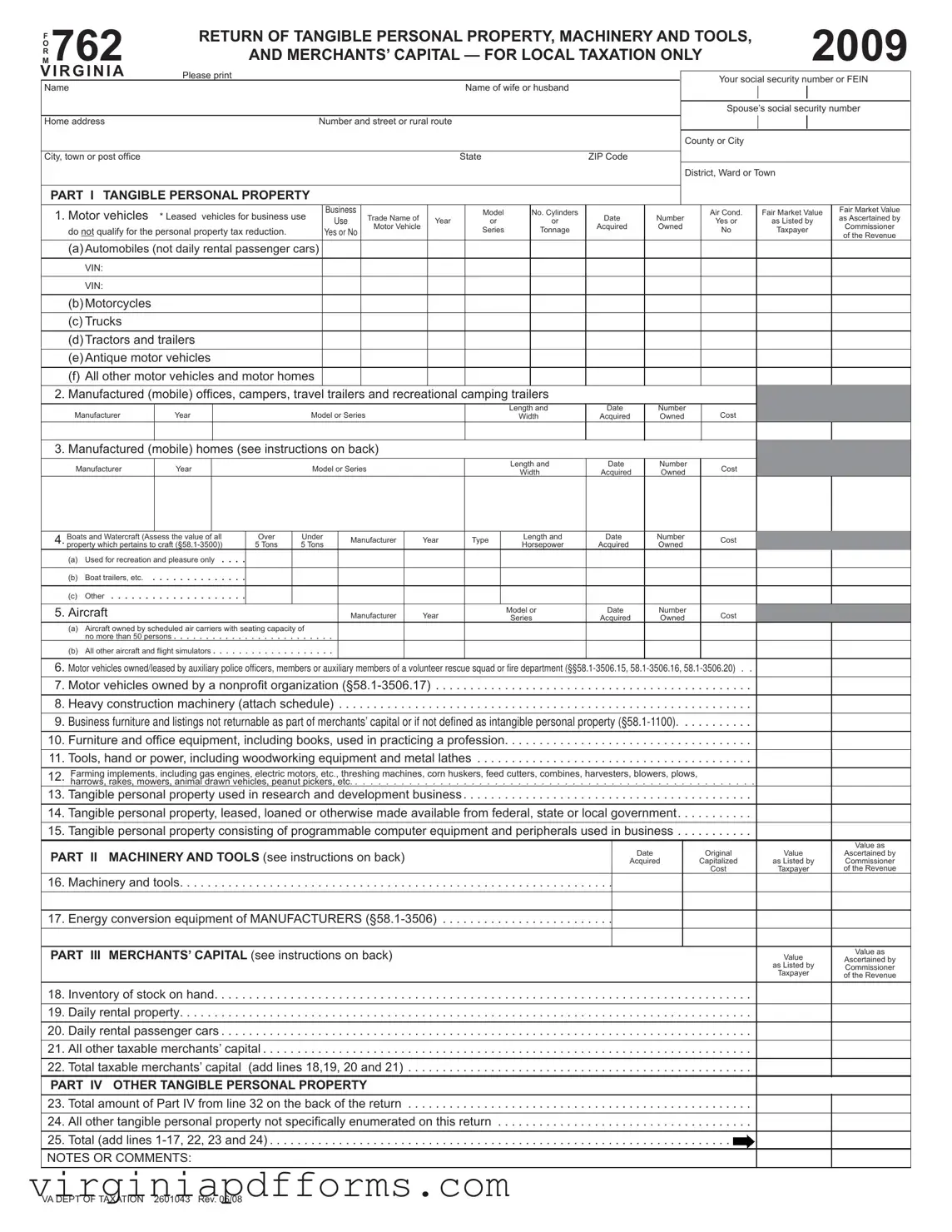Fill in a Valid 762 Virginia Template
The 762 Virginia form is a document used for reporting tangible personal property, machinery and tools, and merchants' capital for local taxation purposes in Virginia. This form must be completed and submitted to the Commissioner of the Revenue of the respective County or City, typically by May 1 each year. It requires detailed information about various types of property owned as of January 1, including vehicles, equipment, and inventory.
Access My Document Now

Fill in a Valid 762 Virginia Template
Access My Document Now

Access My Document Now
or
Free 762 Virginia File
Need this form wrapped up fast?
Finish 762 Virginia online — edit, save, download without effort.